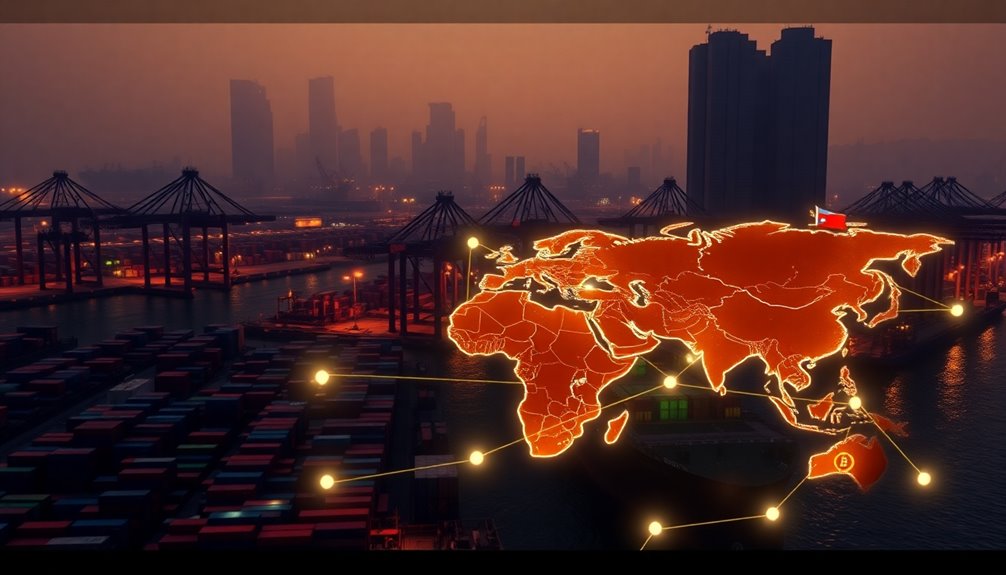In the ongoing rivalry between the U.S. and China, emerging players like DeepSeek are redefining the tech landscape, especially in AI and semiconductors. Meanwhile, the rise of Bitcoin and other cryptocurrencies adds an intriguing twist to the economic competition. As both nations adapt their strategies, the implications for global trade are profound. What does this mean for the future of international relations and economic power? The answers might surprise you.

U.S. vs. China: Global Trade Dynamics
As the U.S. and China grapple with escalating trade tensions and tariffs, the stakes for global trade dynamics have never been higher. You can see the effects of this tit-for-tat trade war manifesting in various sectors, especially as the U.S. imposes tariffs on Chinese imports, targeting critical areas such as semiconductors and pharmaceuticals. This has led to increased costs for both producers and consumers, disrupting global supply chains and contributing to a significant decline in trade flows.
In fact, global trade has dropped by 7% compared to pre-2020 levels, showcasing just how far-reaching these tensions are. Home security system costs are also influenced by these economic shifts, as rising tariffs may lead to increased prices for imported security equipment.
On the technological front, Chinese startup DeepSeek's innovative AI breakthroughs pose a direct challenge to U.S. tech dominance. Companies like Nvidia and ASML are feeling the heat as China ramps up its ambitions through initiatives like "Made in China 2025," aiming to lead in AI, semiconductors, and renewable energy. The U.S. is also focusing on strict enforcement of intellectual property (IP) rules, which could further complicate the competitive landscape.
Meanwhile, the U.S. is focused on strengthening its domestic tech capabilities via policies such as the CHIPS and Science Act. The competition isn't just about economic gains; it's reshaping the global tech landscape, forcing nations to prioritize advancements over collaboration.
You might also notice the shifting global economic landscape as North America seeks to reduce its dependence on China. This shift is accelerating as China forges stronger ties with emerging economies and the Global South, expanding its influence in global trade.
However, the global economy faces headwinds from inflation, energy insecurity, and potential conflicts, all of which could exacerbate trade tensions. In this fragmented environment, market distortions are becoming increasingly common, particularly impacting emerging markets that are vulnerable to supply chain disruptions.
The geopolitical power dynamics are equally complex. The U.S. is leveraging alliances, such as the G7 and NATO, to isolate China economically and politically.
In response, China is bolstering ties with BRICS nations and expanding initiatives like the Belt and Road. It's a landscape marked by an ideological conflict, framed as a battle between democracy and authoritarianism, complicating any efforts for compromise.
As military posturing increases in the Indo-Pacific, the intersection of economic and security concerns becomes even more pronounced. In this high-stakes game, the rivalry between the U.S. and China is shaping not just trade dynamics but also the future of global governance.
As you watch these developments unfold, it's clear that the outcomes will have lasting implications for economies worldwide.









